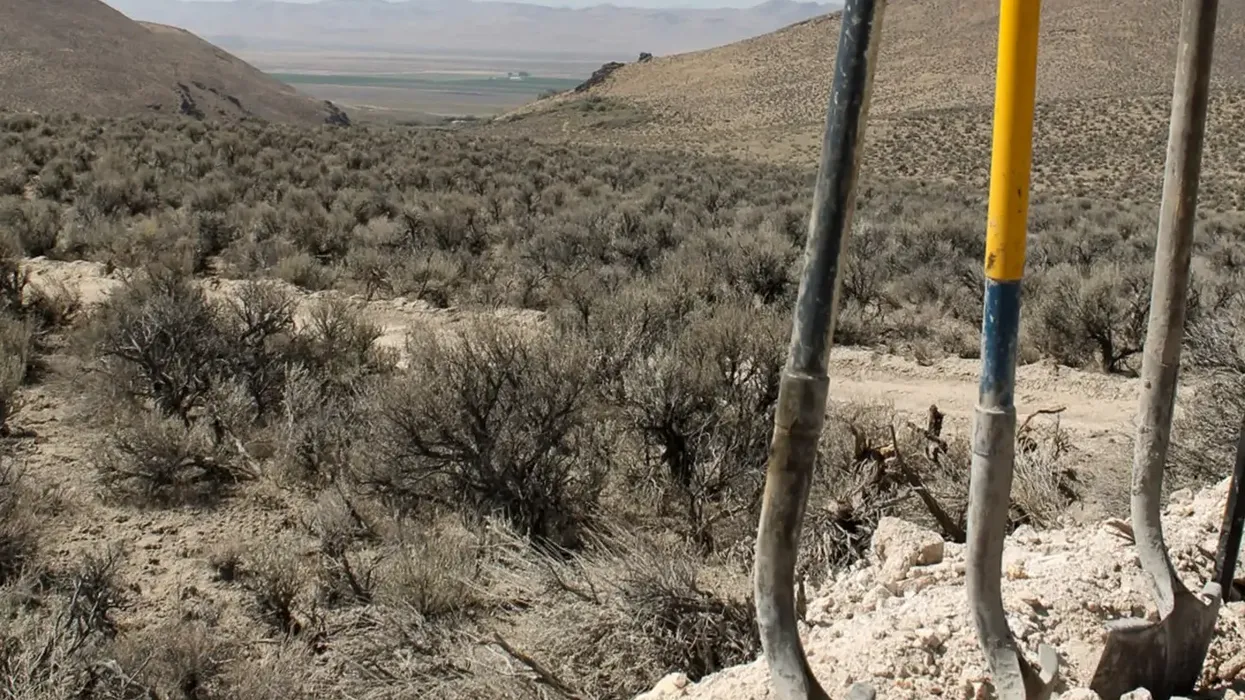Harriet Brewis
Sep 12, 2023

A new study suggests Thacker Pass could be home to the world's largest lithium deposit
AP
An ancient supervolcano in the US is believed to contain a treasure trove so big it could impact the entire world.
According to a new study, the McDermitt Caldera, which sits on the Nevada-Oregon border, could contain the largest deposit of lithium ever seen.
It estimates that deep within the giant crater lies some 20 to 40 million tonnes of the prized metal – more than double the concentration found anywhere else in the world.
The alkali element has earned itself the title of “white gold” over recent years for its role in the manufacturing of batteries, most significantly for use in electric cars, wind turbines and solar panels.
America is largely reliant on China for its lithium supply, so there’s a big push to find sources of the metal on home turf, particularly given that forecasters predict 1 million tonnes of it will be needed by 2040 to satisfy global demand – eight times what was produced in 2022.

Countless commentators note that the metal is at the heart of the global transition away from fossil fuels. However, it also poses ecological problems of its own.
The processes needed to mine and transform lithium into valuable energy stores can damage or destroy ecosystems, deplete groundwater, and produce vast quantities of waste.
And so many environmentalists and local communities are concerned by the US government's recent decision to approve a new mine within the McDermitt Caldera, which sits on land that’s home to precious wildlife habitats and which is also sacred to a number of indigenous peoples, as ScienceAlert notes.
The project is owned by Lithium Nevada, which funded the recent research into the caldera’s potential as a giant lithium reserve.
According to the company's calculations, which were conducted with the help of experts from the University of Oregon and the New Zealand research institute GNS Science, the crater’s southernmost rim – including an area called Thacker Pass – contains the highest concentrations of lithium.
When the ancient supervolcano erupted some 16 million years ago, hot liquid magma seeped through cracks and fissures in the ground, enriching the clay soil with lithium, the study suggests.
It also posits that there was another resurgence of magma after the caldera’s ancient lake dried out, resulting in the emergence of an unusual type of clay around Thacker Pass called illite, which is particularly rich in lithium.

"If you believe their back-of-the-envelope estimation, this is a very, very significant deposit of lithium,” Anouk Borst, a geologist who wasn’t involved in the research, told Chemistry World.
"It could change the dynamics of lithium globally, in terms of price, security of supply, and geopolitics."
However, some argue that the cost of such a prize is too great.
A review conducted by the US Interior Department noted the dangers the Thacker Pass mine could pose to native species, including golden eagles and pronghorn antelopes. Ranchers are also reportedly concerned that it could cause groundwater levels to drop to dangerously low levels.
Furthermore, Thacker Pass, known as Peehee Mu’huh to First Nations communities, is the traditional homeland of several indigenous nations.

They continue to hunt and forage here and also revere the land as the site of an 1865 massacre in which dozens of members of the Paiute tribe were slaughtered by federal soldiers.
"We understand that all of us must be committed to fighting climate change," the People of Red Mountain wrote in a Statement of Opposition to the mine in 2021.
"Fighting climate change, however, cannot be used as yet another excuse to destroy native land. We cannot protect the environment by destroying it."
Sign up for our free Indy100 weekly newsletter
Have your say in our news democracy. Click the upvote icon at the top of the page to help raise this article through the indy100 rankings.
Top 100
The Conversation (0)













